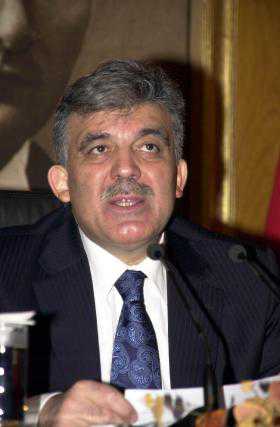Written by William F. Jasper
Friday, 21 November 2008 13:31
Zbigniew Brzezinski, a senior adviser to President-elect Barack Obama on matters of national security and foreign policy, was the featured speaker at Chatham House in London on November 17, 2008. The title of his lecture was “Major Foreign Policy Challenges for the Next US President.” Although Chatham House events are known to attract “the great and the good” of England’s political, financial, and academic elites — as well as many of its top media representatives — there has been virtually no word as to what Brzezinski had to say in any of the world’s press.
Type “Brzezinski” and “Chatham” into your Internet search engines and you will come up with … virtually zilch, nada, nothing.
The esteemed Times of London had only this to say on November 16, the day before the lecture: “Zbigniew Brzezinski, a Democrat former national security adviser … will give an address tomorrow at Chatham House, the international relations think tank, in London.” No report on the event the day after — or since. Ditto for the Telegraph, the BBC, and other British media. Same for the U.S. media: no reports in the New York Times, Washington Post, ABC, NBC, CNS, CNN, Fox, etc.
This is but the latest example of the hermetic seal known as the “Chatham House Rule,” which states:
When a meeting, or part thereof, is held under the Chatham House Rule, participants are free to use the information received, but neither the identity nor the affiliation of the speaker(s), nor that of any other participant, may be revealed.
Chatham House, in St. James Square, London, is the headquarters of the powerful Royal Institute of International Affairs (RIIA), founded in 1920 as the principal front organization of the secret Round Table network of Cecil Rhodes, famous for his fabulous wealth from Africa’s gold and diamond mines. The RIIA was founded in conjunction with its sister organization in the United States, the Council on Foreign Relations (CFR), which is headquartered at the Pratt House in New York. Pratt House also has formally adopted the Chatham House Rule, as has the U.S. State Department (which has been dominated by CFR members for seven decades) and other U.S. agencies.
Thus, we frequently have top U.S. officials speaking privately to audiences of American and foreign elites concerning matters of great importance to the American people, but the content of those talks is off-limits to the American public. This especially should be a matter of concern if the matters these elites are discussing involve plans that will dramatically impact our society, our economy, and our political system.
Brzezinski and his friends at the RIIA and CFR assure us that nothing of the sort ever happens at these gatherings. However, I did attend one of Brzezinski’s lectures at a globalist conference, where the content certainly was disturbing. It was Mikhail Gorbachev’s 1995 State of the World Forum in San Francisco, and Brzezinski was one of the key speakers. He was frustrated that the new millennium was only five years away, but his long-sought goal of world government was still far off. “We do not have a new world order,” he told the audience, a veritable Who’s Who of world finance, business, politics, media, and academia. “We cannot leap into world government in one quick step,” Brzezinski noted. Attaining that objective, he explained, would require a gradual process of “globalization,” building the new world order “step by step, stone by stone” through “progressive regionalization.”
Through his writings — as well as his policies while President Jimmy Carter’s national security adviser — Brzezinski has demonstrated that he is committed to the globalist world view of the RIIA/CFR and the Trilateral Commission (which he helped found, becoming its first director) rather than the constitutionalist view of our Founding Fathers. Rather than a sovereign, independent, constitutional republic, he is committed to a “new world order” that proposes steadily encroaching international controls and institutions, leading gradually, steadily to an America that is submerged and subsumed in a world government.
Those familiar with the writings, speeches, policies, and public records of the many public figures who attend (and speak before) these globalist gatherings understand that Brzezinski’s views on these matters are not his alone; they are shared by many (if not most) of those in attendance. They are the people who set policies and determine the course our nation will take. They prattle regularly about their commitment to “transparency” in government. Yet they themselves speak at off-the-record gatherings such as the recent Chatham House event where Brzezinski was the featured speaker.
Source: www.thenewamerican.com, 21 November 2008
[This is what Chatham House website has about the event -h]
The Whitehead Lecture: Major Foreign Policy Challenges for the Next US President
Monday 17 November 2008 18:30 to 19:30
Location
Held at Chatham House
Participants
Dr Zbigniew Brzezinski, Counselor and Trustee, Center for Strategic and International Studies; National Security Advisor to the President of the United States (1977-81)
Type: Members event
In the wake of the US election the speaker will discuss the major foreign policy issues which will confront the incoming President from the ongoing conflicts in Iraq and Afghanistan, to the threat of nuclear proliferation and the competitive pursuit of resources.
This event will be followed by an open reception.
Resources:
Meeting Recording
Q&A Recording
Source: www.chathamhouse.org.uk






